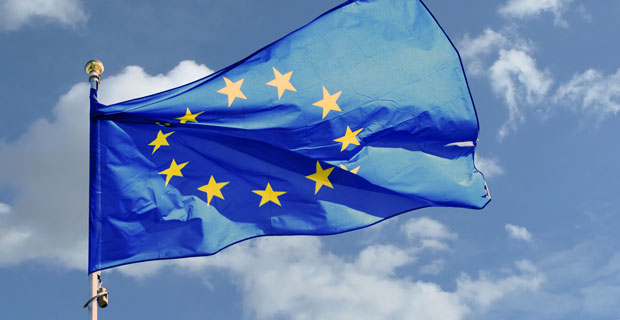A copyright directive that some fear could break the Internet cleared the final hurdle in the European Union on Monday.
The Council of the European Union approved the directive, which makes platforms for user-uploaded content — like Google and Facebook — legally liable for violating the rights of copyright holders. It requires them to obtain the permission of the holders before posting content to their sites.
If they don’t have the rights to a piece of content, the directive requires the platform to make its best efforts to obtain an authorization, to ensure the unavailability of unauthorized content. They also must act expeditiously to remove any unauthorized content brought to their attention and prevent future uploads of that content.
The directive requires that copyright holders be compensated for the display of excerpts of their works — or even links to them — on a website.
“With today’s agreement, we are making copyright rules fit for the digital age,” said European Commission President Jean-Claude Juncker.
“Europe will now have clear rules that guarantee fair remuneration for creators, strong rights for users and responsibility for platforms,” he continued. “When it comes to completing Europe’s digital single market, the copyright reform is the missing piece of the puzzle.”
Harms Online Innovation
The directive undermines the legality of the tools and sites that Europeans use every day to share thoughts, ideas, culture, humor and science, according to the Computer & Communications Industry Association, a nonprofit tech advocacy group.
The directive increases the incentives for platforms to over-filter and over-remove users’ uploads at the expense of legitimate uploads, it maintained.
The “snippet tax” created by the directive risks restricting freedom of information online, the association warned.
“Despite recent improvements, the EU directive falls short of creating a balanced and modern framework for copyright,” said CCIA Europe Senior Policy Manager Maud Sacquet.
“We fear it will harm online innovation and restrict online freedoms in Europe,” she continued. “We urge member states to thoroughly assess and try to minimize the consequences of the text when implementing it.”
Member states have an opportunity to “minimize the consequences” when they fashion local legislation that will use the directive as a model. They have 24 months to do that from the time the directive is published in the Official Journal of the EU.
Cut-and-Paste Policy
Because it targets the major online platforms, the directive will have a negative impact on the digital economy, predicted Eline Chivot, a senior policy analyst in the Belgium offices of the Center for Data Innovation, a think tank studying the intersection of data, technology and public policy.
“The adoption of this reform reflects the unfortunate way in which policymakers tend to directly copy and paste offline world regulations to the online world,” she told TechNewsWorld.
Because online platforms will become liable for copyright infringement, they’re going to have to negotiate rights deals or seek consent before posting content to their sites.
“That will harm online platforms’ business models by forcing a licensing business model on open platforms,” Chivot explained.
“Companies such as Facebook or Google are now able to provide free services to users because they host content that doesn’t require a cumbersome web of licenses,” she said. The directive “sets a precedent, introducing more complexity for their user-generated content. Will they have to strike a licensing deal with everyone uploading a recipe?”
There will be not only an administrative burden on websites driven by user-content, but also a financial burden.
“It is important to note that the European digital economy already lags and its platforms will not be able to compete, given such rules will make it more difficult for them to grow,” Chivot said.
“They may not be able to remunerate publishers to be able to host content; hence this will limit their reach to a broad audience of web users,” she continued. “This creates legal uncertainty that will hamper innovation.”
Free Expression Catastrophe
Although the directive does not mention content filters, they hang over the measure like an unshakable regret.
The directive “does not explicitly call for their use, but to be able to scan content before it is uploaded to see if it is copyrighted, the use of upload filters by platforms may be inevitable out of an abundance of caution,” Chivot noted.
“Platforms will want to avoid the risk of not complying and the risk of facing penalties,” she continued. “As a result, this could restrict users’ access to content.”
One reason filtering content raises the hackles of free speech groups is that even the best filters are seriously flawed.
“Some algorithms used for these filters cannot make a distinction between perfectly legal reuse of content and actual infringements,” Chivot noted.
Moreover, “the compliance burden may lead companies to redirect some of their resources that could have been spent on innovation,” she pointed out.
In addition, to comply with the directive, regimes will need to be created to settle ownership disputes. Those regimes could pose a nightmare scenario for legitimate rights holders who have had their rights challenged by an adversary.
“Even if the filters only make mistakes 1 percent of the time, on a half a trillon pieces of content a day, that’s millions and millions of case adjudications that are going to have to be made by human beings,” said Cory Doctorow, a special advisor to the San Francisco -based Electronic Frontier Foundation, an online rights advocacy group.
“The line to get your case reconsidered by the platform could stretch to months,” he told TechNewsWorld.
“If you’re talking about something newsworthy, then it’s going to show up long after anyone gives a damn,” Doctorow said. “That’s why this is catastrophic for free expression.”
Chilling Effect
It remains to be seen how the individual nations in the EU will fashion their copyright laws based on the directive, but it’s likely that platforms will become more conservative in what they allow users to upload, observed Gus Rossi, global policy director at Public Knowledge, an advocacy group based in Washington, D.C.
“That has a high potential of harming free speech online,” he told TechNewsWorld.
“The directive creates a chilling effect on Internet platforms,” Rossi said. “If you’re an online platform, your incentives are to diminish your risks and limit what your users upload.”
Even if you want to comply with the law, it won’t be easy.
“You’re going to have 27 or 28 different flavors of a directive that’s very vague and very contentious, which means 27 or 28 countries are going to go through internal litigation to try to determine what the correct interpretation of the law is,” said Rossi.
“This will eventually end up in front of the European Court of Justice,” he predicted. “So for the next three to five years, there will be legal uncertainty.”






















































